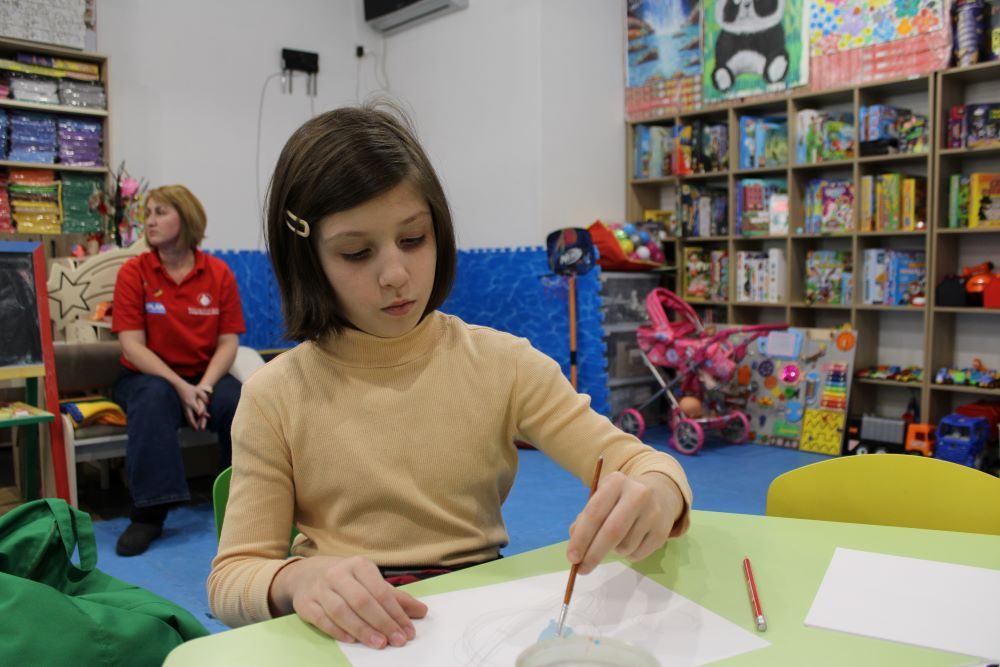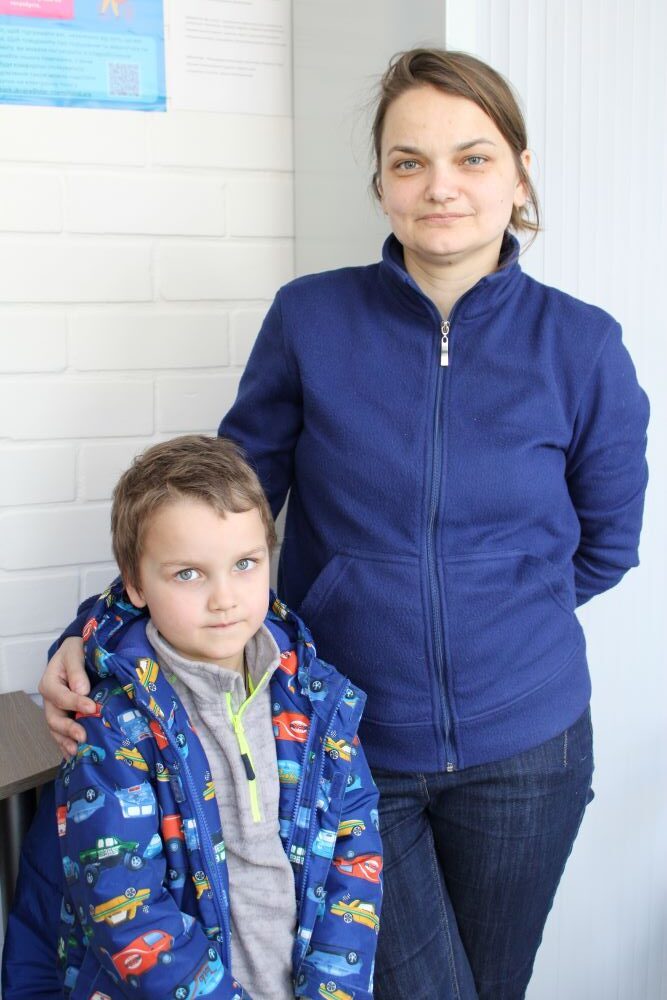Healing and growth in child-friendly spaces in Ukraine
In the wake of ongoing war, Helga, 9, and Grisha, 5, find a safe space to learn and grow through creative activities and socialising with other children.

Helga, 9, enjoys painting at the Child-Friendly Space. Creative activities like painting encourage self-expression in children affected by war. © Plan International
Grisha, 5, and Helga, 9, are from a city in central Ukraine. When the war escalated in 2022, both Grisha and Helga’s families chose to remain in Ukraine. Like many other children, their education was impacted as a result of full-scale conflict.
Around 1.6 million children from Ukraine have had their education disrupted in the past 3 years—almost one-third of children nationwide. Many schools now operate online, with kindergartens closed, leaving children without essential social interactions or structured learning environments. In addition to learning disruption, children in Ukraine are now facing the effects of stress, displacement, and trauma.
“From the beginning, he wouldn’t leave me at all. But one day, he came up to me and said, ‘Mum, you can go home,’ that’s when I knew he felt safe.”
Oksana, mother of Grisha, 5
Creating safe and nurturing environments

“Since the escalation of the war, children and adolescents have emerged as one of the most vulnerable groups in Ukraine. In my opinion, even more so than adults,” explains Svitlana, a psychologist. “Some have witnessed war firsthand and are traumatised, while others struggle with overwhelming emotions or withdrawal.”
However, creating safe environments for children to learn, express themselves, and socialise can relieve psychological stress. Svitlana says, “Children are incredibly resilient. When given the right support, they can heal, adapt, and even thrive.”
Svitlana works at a child-friendly space (CFS) in central Ukraine, which opened in 2024. These spaces work to create a safe place for children by offering educational activities, creative workshops, and an opportunity to socialise.
Grisha visits the CFS every morning, as kindergartens remain closed. “We started coming to the centre from the very first day it opened a year ago,” says his mother, Oksana. “From the beginning, he wouldn’t leave me at all. But one day, he came up to me and said, ‘Mum, you can go home.,’ that’s when I knew he felt safe here.”
Like Grisha, Helga attends the CFS every day and finds both comfort and inspiration in creative activities. “There are my friends and so many interesting things we can do together: board games, art classes and crafts,” she shares. “But most of all, I love painting with watercolours. When I paint, I feel like I enter another world, completely immersed and free from everything around me.”
“Such centres are like an island of salvation for us,” shares Natalia, Helga’s mother. “I can see how the atmosphere has a positive effect on Helga. She has become calmer, she is developing, and she has a space where she feels comfortable and supported.”
Supporting children and strengthening parents
“Many parents struggle
Svitlana, psychologist at the CFS
with how to help their
children cope.”
In addition to activities and classes for children, the CFS and mobile community locations offer specialised programmes for parents, including Parenting Under Pressure and Parent and Adolescent Life Skills programmes. These programmes intend to help parents manage stress, develop coping strategies, and strengthen family dynamics.
“Many parents struggle with how to help their children cope, especially if they themselves are dealing with stress and uncertainty,” says Svitlana. “When parents learn how to create a stable, supportive environment at home, the changes in their children are remarkable.”
As a result of these programmes, parents at the CFS report better communication, increased self-development, and improved understanding of their children, along with improved family relationships.
“There are classes for parents, as well, and even special sessions for mums with children up to four-years-old,” says Oksana. “We don’t have enough places like this.”

About the project
Since its opening, the CFS has assisted over 1,000 children and parents with psychological support, including both local and displaced children and children with disabilities. Two additional CFSs operate in other cities in central Ukraine.
By combining psychological assistance, creative workshops, structured learning, and parental support programmes, this space aims to help mitigate war-related trauma, foster resilience, and create a nurturing environment where children can regain a sense of normalcy. As the conflict continues, the spaces help to support long-term recovery and provide hope for the future for Ukraine’s youngest generation.
Categories: Early childhood development, Education


